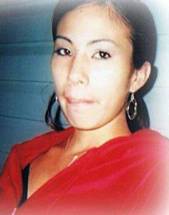Privacy concerns must be addressed
Read this article for free:
or
Already have an account? Log in here »
To continue reading, please subscribe:
Monthly Digital Subscription
$0 for the first 4 weeks*
- Enjoy unlimited reading on winnipegfreepress.com
- Read the E-Edition, our digital replica newspaper
- Access News Break, our award-winning app
- Play interactive puzzles
*No charge for 4 weeks then price increases to the regular rate of $19.00 plus GST every four weeks. Offer available to new and qualified returning subscribers only. Cancel any time.
Monthly Digital Subscription
$4.75/week*
- Enjoy unlimited reading on winnipegfreepress.com
- Read the E-Edition, our digital replica newspaper
- Access News Break, our award-winning app
- Play interactive puzzles
*Billed as $19 plus GST every four weeks. Cancel any time.
To continue reading, please subscribe:
Add Free Press access to your Brandon Sun subscription for only an additional
$1 for the first 4 weeks*
*Your next subscription payment will increase by $1.00 and you will be charged $16.99 plus GST for four weeks. After four weeks, your payment will increase to $23.99 plus GST every four weeks.
Read unlimited articles for free today:
or
Already have an account? Log in here »
Hey there, time traveller!
This article was published 08/06/2022 (1278 days ago), so information in it may no longer be current.
The joyful burden of parenting should include the realization that children imitate what they see in the home. Parents can try to shirk this responsibility with advice such as the age-old rejoinder “Don’t do as I do, do as I say,” but the parents are just wasting their breath with such words.
Children emulate behaviour exhibited by elders, including elders who act violently.
Manitoba is proposing an innovative attempt to stem generational violence, recognizing that when children are exposed to violence or abuse in their homes, they are more inclined to grow up thinking violence within families is normal.

The strategy is part of Manitoba’s adaptation of Clare’s Law, named after Clare Wood, a British woman who was murdered in 2009 by her partner, who had a lengthy criminal record of sexual violence. The law — versions of which have already been introduced in in Saskatchewan, Alberta and Newfoundland-Labrador — lets people find out whether their partner has a history of abuse or violence against intimate partners, even gaining access to information that used to be deemed private by authorities.
The bill introduced last week by Families Minister Rochelle Squires matches the laws in other provinces, but it goes further. Ms. Squires said Manitoba’s “new generation” of Clare’s Law will expand the criteria to also allow the disclosure of information about previous family violence and abuse, not just toward an intimate partner.
It would work like this: someone concerned that an adult linked to the household might pose a safety risk can apply to the province for information about the adult’s past. A provincial director would assign a police agency to assess whether the family is at risk of violence, and whether it’s valid to break the previous privacy rules and release the information to the person who inquired.
The proposed disclosure of personal information will undoubtedly prompt privacy concerns, as it should. Violent behaviours resulting in criminal convictions have long been a matter of public record that can be accessed by anyone, but the validity of such convictions is safeguarded by a time-proven legal process that examines the evidence, weeds out false claims and lets the accused person explain their innocence.
An accusation is not a conviction. That important distinction is well understood by legal professionals. But is it understood by Ms. Squires?
She has yet to explain in detail what personal information would be publicly available. Second-hand reports and rumours? Suspicions phoned in by a nosy neighbour? Will the subject of the inquiry be warned before their personal information will be released? Can they explain and appeal?
Police reports will apparently be relied upon for information, but polls show Winnipeg police are not trusted by a majority of Indigenous people and people of colour. Many will assume information about them in private police files could be unfair and shouldn’t be disclosed.

Ms. Squires warrants full support for the government’s intention to alert vulnerable people when a partner has a history of abusive and violent behaviour. It’s clear Manitoba needs to try new tactics to protect families. Statistics show, in 2019 for example, this province had 417 police-reported acts of family violence, higher than any province except Saskatchewan.
But she has yet to acknowledge publicly that improperly labelling someone as abusive or violent is a serious matter that can ruin lives. Before erasing the legal boundaries of privacy of some citizens, she should explain what the new boundaries will be.
The bill is admirable in its broad strokes, but it shouldn’t be passed until the details are filled in.





